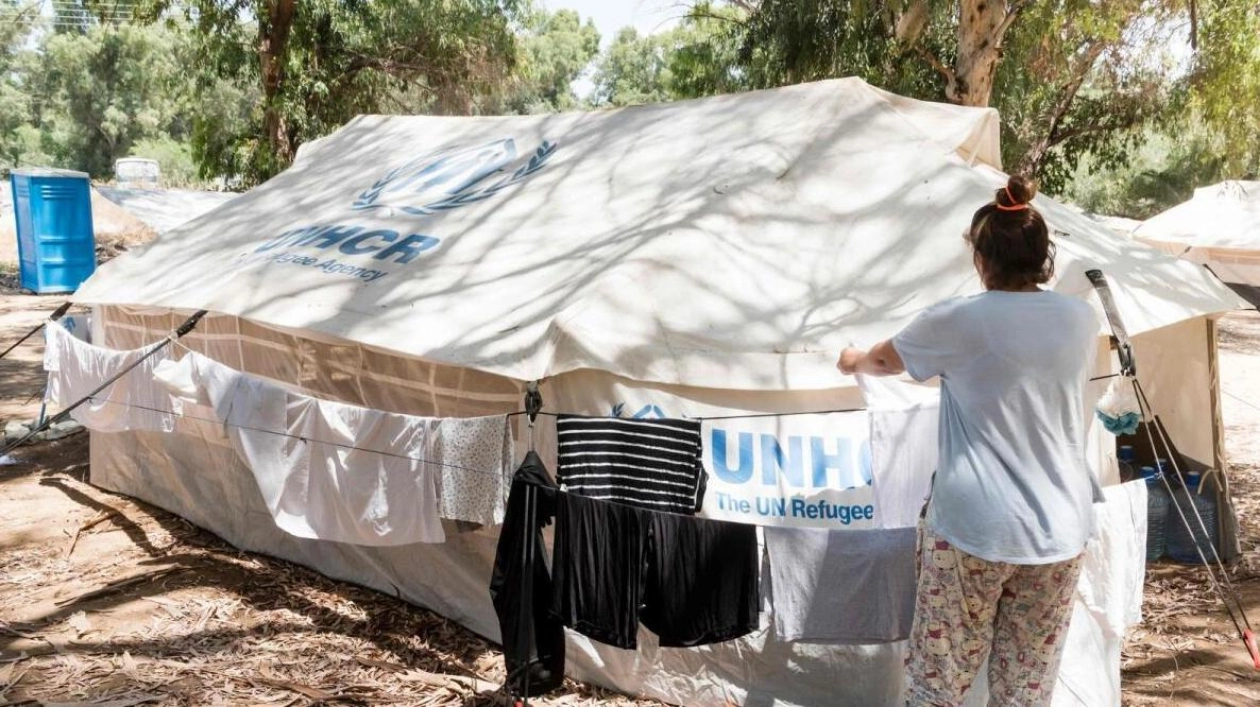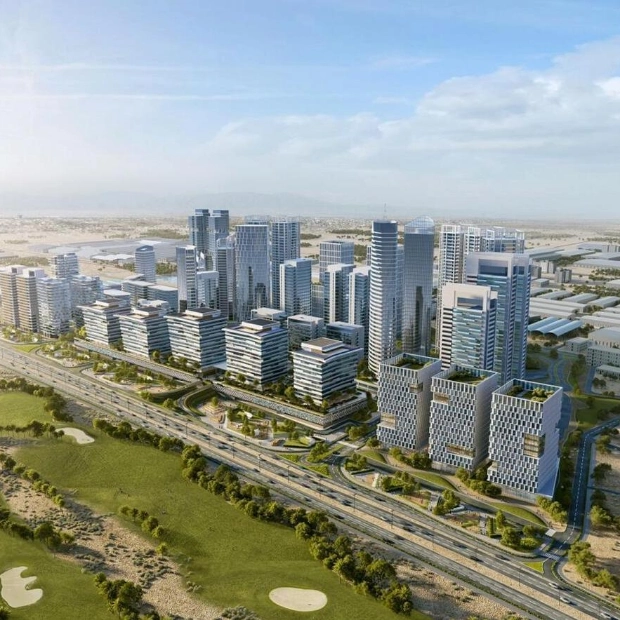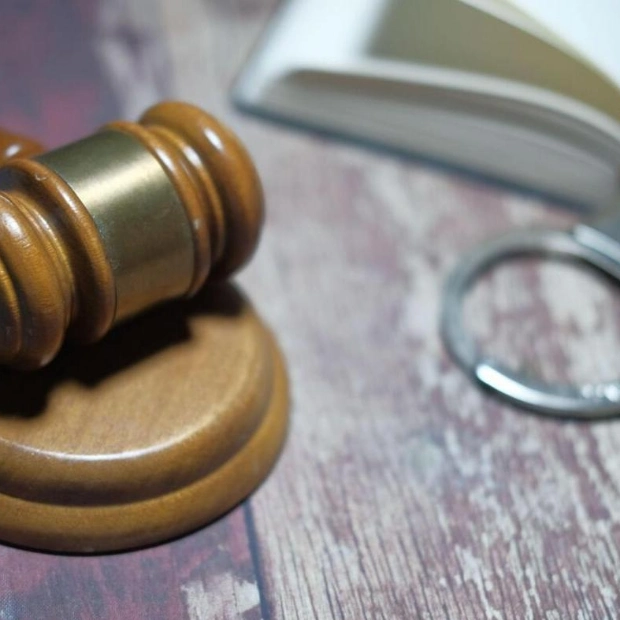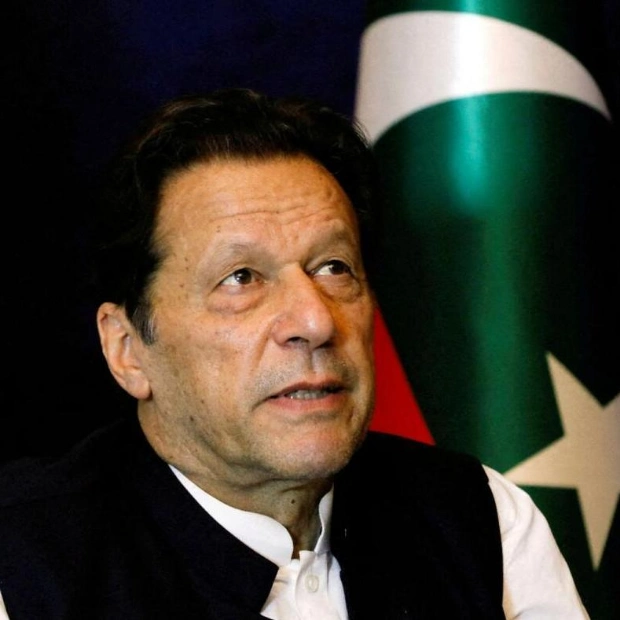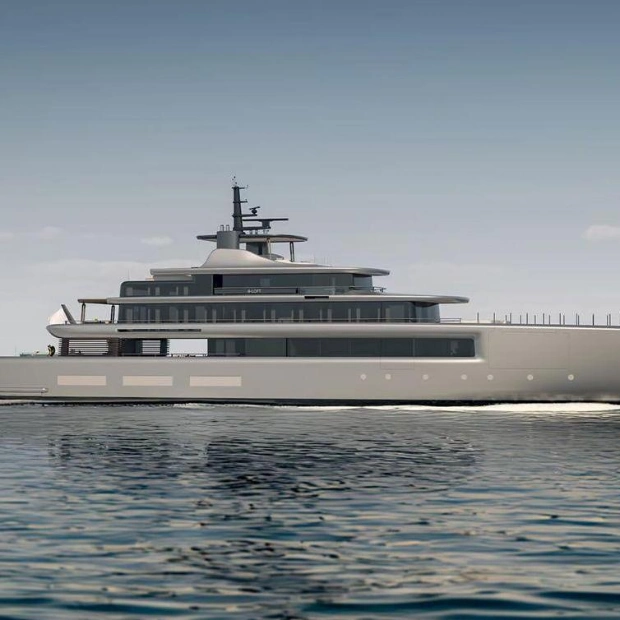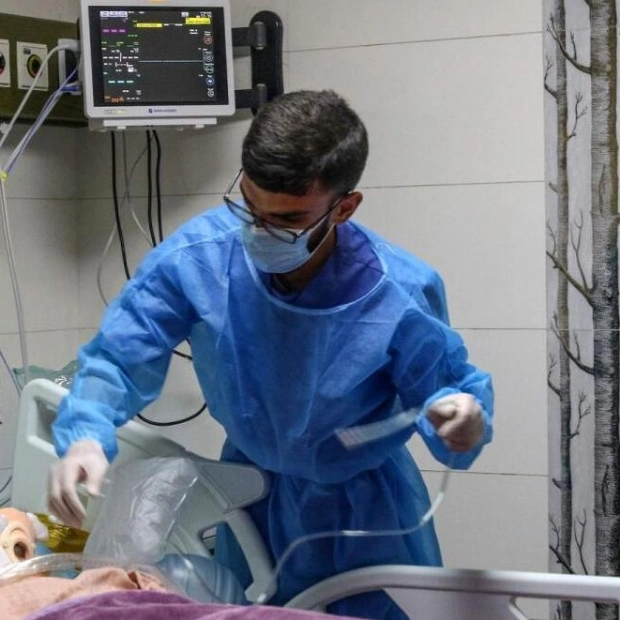Numerous migrants are enduring the scorching temperatures in Cyprus's buffer zone, alleging they were forced into this no-man's land by police in the island's southern region. The UN refugee agency (UNHCR) reported on Friday that 59 asylum seekers are currently residing in the UN-monitored buffer zone, situated between the internationally recognized Republic of Cyprus and the self-proclaimed Turkish Republic of Northern Cyprus (TRNC), after attempting to move southward.
Hussein Zare, seated on a plastic chair beneath the shade of trees and encircled by UNHCR-branded tents, recounted his journey from Iran to Cyprus, aiming to enter the European Union and begin a new life in France. In May, Zare traveled from Iran to Istanbul with his wife and daughter, and then onward to the TRNC, which occupies the northern part of the island and is not subject to EU laws. Upon attempting to cross the UN buffer zone into southern Cyprus, Zare stated, "the police apprehended us and transported us here." He further explained, "The government... has confined us to this area," pointing to the camp adjacent to a UN post and an exit gate from the buffer zone, also referred to as the Green Line.
The Cypriot ministry of migration and asylum has stated that the decision to not accept these individuals is based on the necessity to prevent the Green Line from becoming a migrant passage. Since the 1974 Turkish invasion, instigated by a coup supported by Athens, the island has been partitioned between the Greek-speaking south and the Turkish Cypriot north, which declared independence in 1983 but is only recognized by Turkey. The buffer zone, patrolled by UN peacekeepers, runs diagonally across the island, separating the two territories. Cyprus, the easternmost member of the EU, considers itself a "frontline country" on the Mediterranean migrant route, with asylum seekers making up over five percent of the republic's 915,000 population. The Cypriot government has accused Turkey of neglecting and permitting irregular migrants to cross the Green Line, prompting enhanced security measures along the divide.
Zare mentioned that he and the other migrants at the camp have engaged a lawyer, with assistance from the UNHCR, to submit asylum applications to Cypriot authorities. However, he noted, "we have yet to receive a response from them, and our requests have been denied." The migration ministry of the Republic of Cyprus issued a statement asserting that since these individuals traveled through Turkey to the TRNC, it is Turkey's duty to facilitate their access to asylum procedures. Following a visit to the buffer zone camp, British High Commissioner Irfan Siddiq expressed on social media platform X, "Despite (UN) efforts, these people — including children — are enduring dire conditions." He emphasized the need for an immediate solution to relocate these individuals to more humane conditions and to expedite the processing of their asylum claims.
Mudassir, a 34-year-old Afghan asylum seeker, escaped Taliban rule in Kabul, fearing for his life due to his father's employment at the US embassy. He recounted, "I was solely focused on leaving Afghanistan." Mudassir believed that reaching the TRNC would lead him to the EU and safety, only to discover its unrecognized status upon arrival. Upon crossing the buffer zone at night with other Afghans to seek asylum with Cypriot police, he revealed that the police declined to register their cases, instead transporting them to the buffer zone. "We feel hopeless in these extremely harsh conditions," he lamented, "There are many snakes. There are children and women, and it's very challenging for them."
Lawrence, a Nigerian migrant who withheld his last name, arrived in northern Cyprus on a student visa. Captured by police upon crossing from the north on July 20, the 23-year-old described his group as "petrified." He added, "At some point, I just gave up on everything." As other migrants washed their faces from a large water tank, Lawrence expressed, "My dream was to complete college and live a normal life... anywhere."
